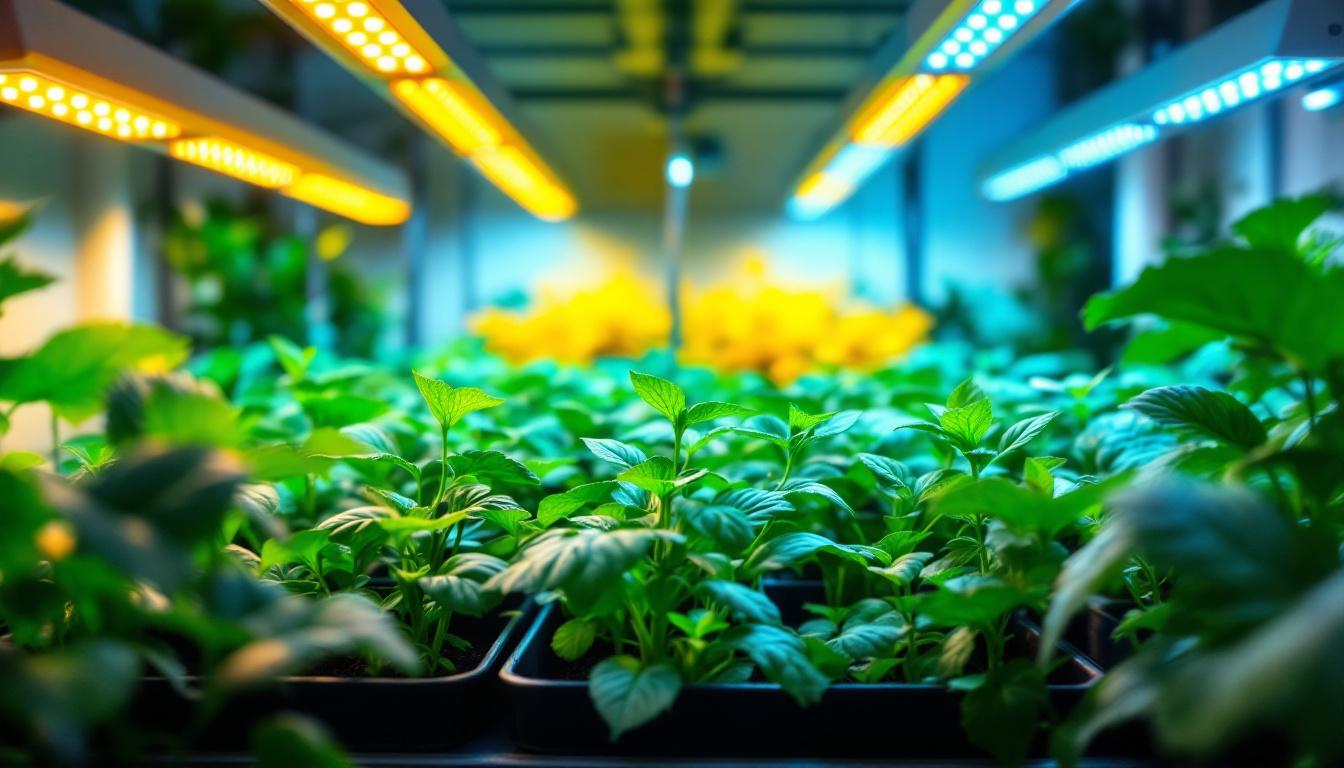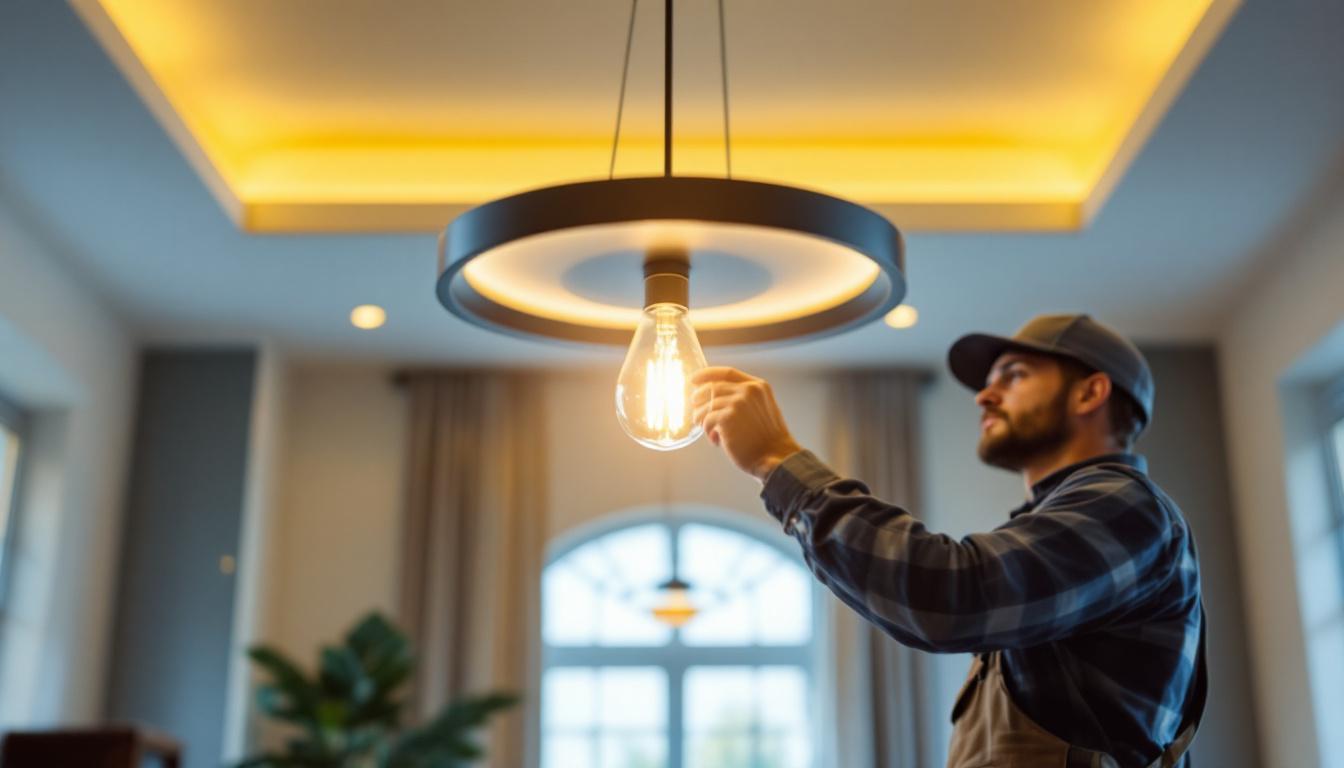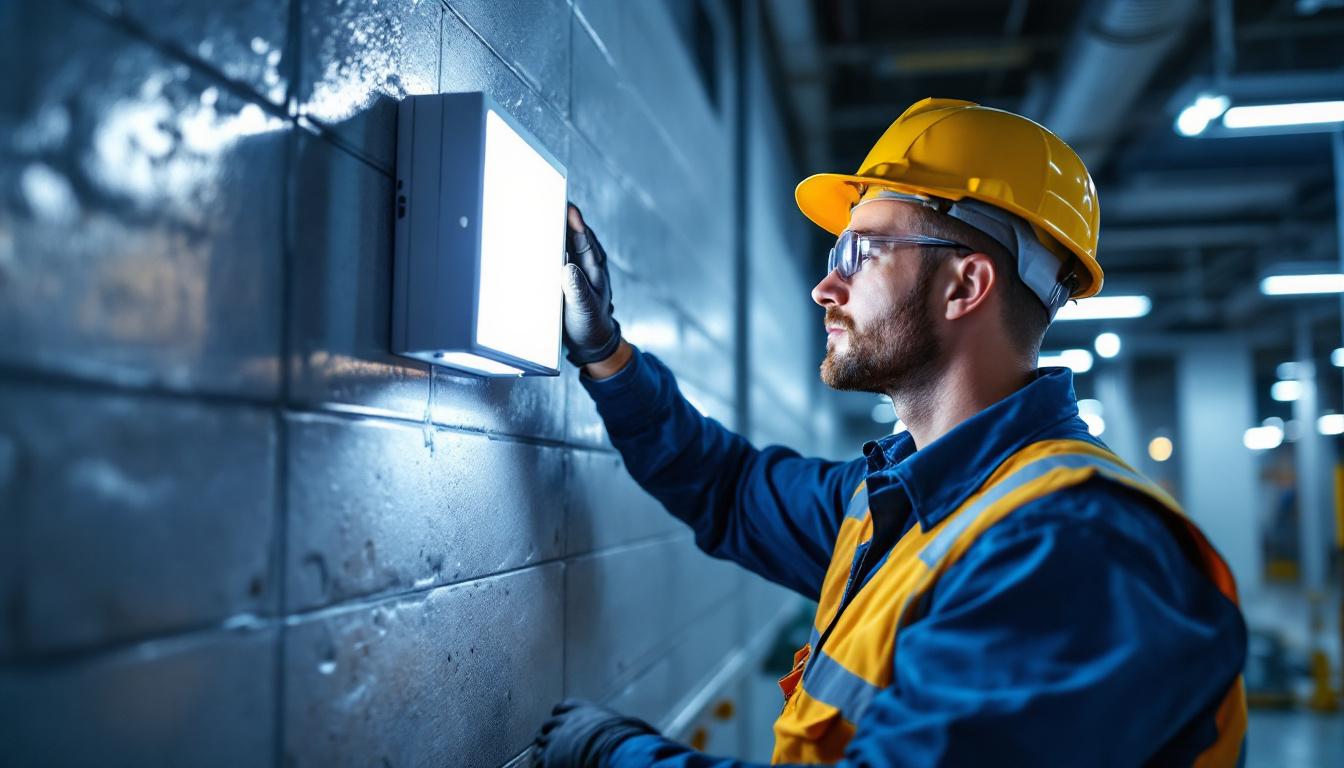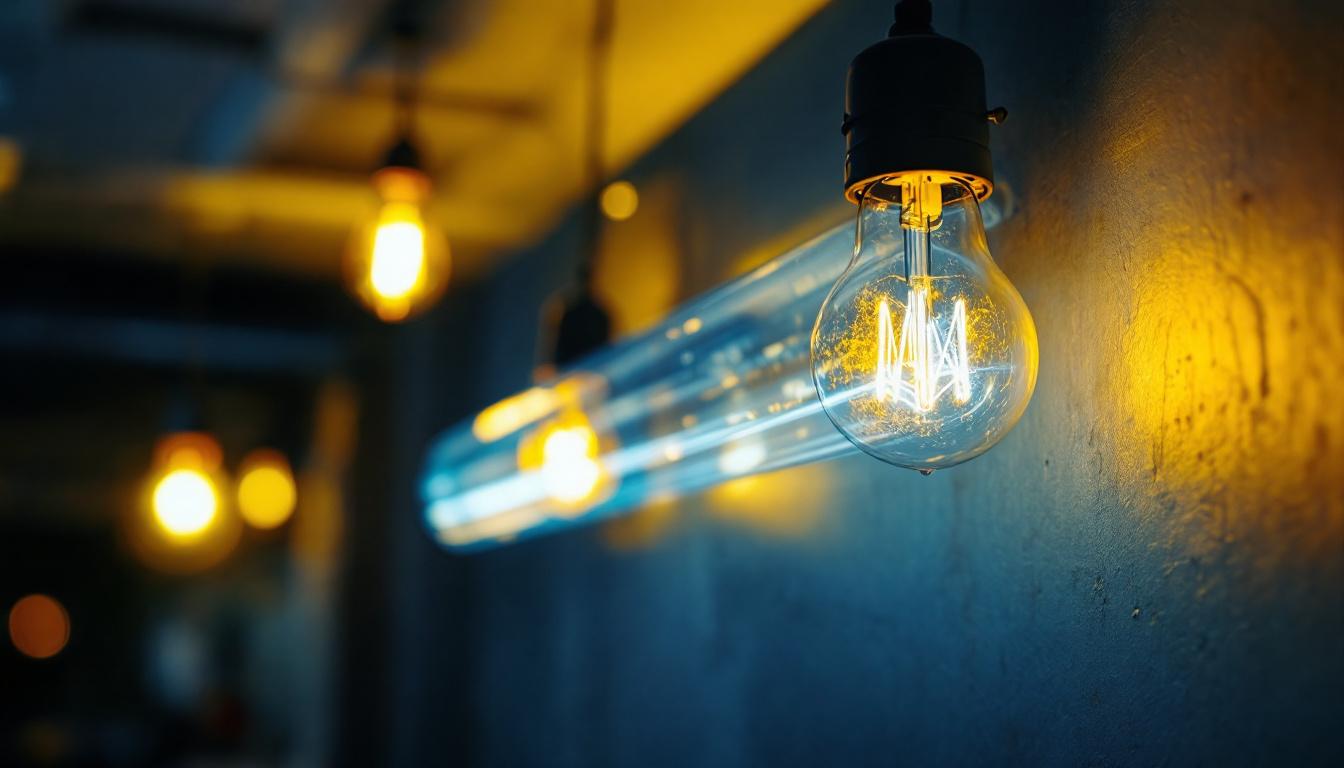
In the rapidly evolving world of agriculture and horticulture, lighting plays a pivotal role in maximizing plant growth and yield. For lighting contractors, understanding the nuances of LED hydroponic lighting is essential to providing effective solutions that meet the needs of growers. This article delves into the intricacies of LED hydroponic lights, offering insights that can help lighting contractors enhance their services and ensure client satisfaction.
Hydroponics is a method of growing plants without soil, relying instead on nutrient-rich water solutions. This innovative approach allows for greater control over plant growth conditions, including light exposure. Lighting is a critical component in hydroponic systems, as it directly influences photosynthesis, plant health, and overall yield.
LED lights have emerged as a preferred choice for hydroponic applications due to their energy efficiency, longevity, and ability to provide specific light spectrums. For lighting contractors, grasping the fundamentals of hydroponic lighting is vital for offering tailored solutions to clients. Understanding the nuances of different lighting technologies can significantly enhance the effectiveness of hydroponic setups, leading to healthier plants and more abundant harvests.
Different stages of plant growth require varying light spectrums. For instance, blue light promotes vegetative growth, while red light is crucial for flowering and fruiting. Understanding the specific light requirements for different crops can help contractors recommend the right LED fixtures that optimize growth. Additionally, some plants may benefit from a combination of both spectrums, which can be achieved through full-spectrum LED lights that mimic natural sunlight.
Moreover, the ability to customize light spectrums through advanced LED technology allows contractors to provide solutions that cater to specific plant types, enhancing the overall effectiveness of the hydroponic system. By employing programmable lighting schedules, growers can simulate seasonal changes, further encouraging plants to thrive in controlled environments. This adaptability not only maximizes growth rates but also allows for year-round cultivation, which is particularly beneficial for commercial growers looking to meet consumer demand consistently.
One of the most significant advantages of LED hydroponic lights is their energy efficiency. Compared to traditional lighting options, LEDs consume far less energy, which translates to lower operational costs for growers. This aspect is particularly appealing to clients who are conscious of their energy consumption and overall expenses. Furthermore, the longer lifespan of LED lights reduces the frequency of replacements, leading to additional savings in maintenance and labor costs.
Lighting contractors can leverage this information to position LED solutions as not only environmentally friendly but also economically advantageous. By providing clients with a clear understanding of potential savings, contractors can foster trust and encourage investment in high-quality LED systems. Additionally, educating clients about the potential for increased crop yields due to optimized lighting can further justify the initial investment. As more growers recognize the benefits of efficient lighting, the demand for expert guidance in selecting the right systems will continue to grow, creating opportunities for contractors to expand their services and expertise in the hydroponic market.
With a plethora of LED options available in the market, selecting the right fixtures for hydroponic applications can be daunting. Lighting contractors must consider several factors to ensure they recommend the best products for their clients’ needs.
There are various types of LED fixtures suitable for hydroponic systems, including full-spectrum lights, grow lights, and specialized fixtures designed for specific plant types. Full-spectrum lights mimic natural sunlight, making them versatile for various growth stages. Grow lights, on the other hand, are optimized for specific wavelengths to enhance growth during particular phases.
Contractors should familiarize themselves with these different types to provide informed recommendations. Understanding the unique advantages of each fixture can help contractors tailor their offerings to meet the specific requirements of their clients.
Light intensity is another critical factor in hydroponic lighting. Different plants have varying light intensity needs, and understanding these requirements is essential for achieving optimal growth. Additionally, coverage area plays a significant role in ensuring that all plants receive adequate light exposure.
Contractors should assess the size of the growing area and the types of plants being cultivated to determine the appropriate light intensity and coverage. This assessment will enable contractors to recommend fixtures that provide uniform light distribution, leading to healthier plants and higher yields.
Proper installation and maintenance of LED hydroponic lights are crucial for their effectiveness and longevity. Lighting contractors must be equipped with the knowledge and skills to ensure that installations are carried out efficiently and safely.
When installing LED hydroponic lights, it is essential to follow best practices to maximize performance. This includes positioning lights at the appropriate height to prevent light burn and ensuring even distribution across the growing area. Contractors should also consider the angle of the lights to optimize coverage and minimize shadows.
Additionally, proper wiring and electrical connections are vital for safety and functionality. Contractors should adhere to local regulations and standards to ensure compliance and prevent potential hazards.
Maintenance is key to prolonging the lifespan of LED fixtures. Regular cleaning of the lights and surrounding areas can prevent dust and debris buildup, which can hinder light output. Contractors should educate clients on the importance of routine maintenance and provide guidelines for keeping their hydroponic lighting systems in optimal condition.
Furthermore, contractors should offer ongoing support and service options to clients, ensuring they have access to assistance when needed. This proactive approach can foster long-term relationships and enhance client satisfaction.
As technology continues to advance, integrating smart systems into hydroponic lighting solutions is becoming increasingly popular. Lighting contractors can benefit from understanding these technologies to offer innovative solutions to their clients.
Smart lighting systems allow for remote control and automation of lighting schedules. This technology enables growers to customize light exposure based on specific plant needs and growth stages. By integrating smart systems, contractors can provide clients with enhanced control over their hydroponic environments.
Additionally, these systems can be programmed to adjust light intensity and spectrum based on real-time data, optimizing plant growth and energy usage. Contractors should stay informed about the latest smart lighting technologies to remain competitive in the market.
Utilizing data analytics can significantly enhance the effectiveness of hydroponic lighting systems. By collecting and analyzing data on plant growth, lighting performance, and environmental conditions, contractors can provide valuable insights to clients.
These insights can inform decisions on light adjustments, helping clients achieve optimal growth conditions. Contractors who can offer data-driven recommendations will position themselves as trusted advisors in the hydroponic lighting space.
For lighting contractors, effectively marketing LED hydroponic lighting solutions is essential for attracting clients and driving sales. A strategic marketing approach can highlight the benefits of LED technology and position contractors as experts in the field.
Creating educational content, such as blog posts, videos, and webinars, can help contractors establish authority in the hydroponic lighting niche. By sharing valuable information about the benefits of LED lights, installation tips, and maintenance guidelines, contractors can engage potential clients and build trust.
Moreover, educational content can be shared across various platforms, including social media, websites, and email newsletters, reaching a broader audience and generating leads.
Building relationships with growers, agricultural suppliers, and industry professionals can lead to valuable partnerships and referrals. Networking at trade shows, conferences, and local events can help contractors connect with potential clients and showcase their expertise in LED hydroponic lighting.
Collaborating with other professionals in the industry, such as horticulturists and agricultural consultants, can also enhance credibility and create opportunities for joint ventures. These partnerships can lead to a more comprehensive service offering for clients.
The landscape of hydroponic lighting is continually evolving, and staying ahead of trends is crucial for lighting contractors. Understanding future developments can help contractors adapt their offerings and remain competitive in the market.
As technology advances, LED lights are becoming more efficient and versatile. Innovations in chip technology and thermal management are leading to higher light output and improved energy efficiency. Contractors should keep an eye on these advancements to ensure they are offering the latest and most effective solutions to clients.
Furthermore, the development of tunable LED lights, which allow for precise adjustments in light spectrum and intensity, is set to revolutionize hydroponic lighting. Contractors who embrace these innovations will be better positioned to meet the evolving needs of growers.
As sustainability becomes a priority for many businesses, incorporating eco-friendly practices into hydroponic lighting solutions is essential. Contractors can focus on promoting energy-efficient LED systems that reduce carbon footprints and support sustainable agriculture.
Additionally, offering recycling programs for old lighting fixtures and educating clients on sustainable practices can enhance a contractor’s reputation as an environmentally conscious provider. This commitment to sustainability can resonate with clients and foster loyalty.
In the competitive landscape of hydroponic lighting, lighting contractors play a crucial role in helping growers achieve success. By understanding the intricacies of LED hydroponic lights, from light spectrum and energy efficiency to installation and maintenance, contractors can provide tailored solutions that enhance plant growth and yield.
Moreover, integrating technology, marketing effectively, and staying abreast of future trends will position contractors as leaders in the field. By maximizing their expertise and offering comprehensive services, lighting contractors can ensure their clients thrive in the world of hydroponics.
Ready to elevate your lighting projects and empower your clients’ hydroponic systems? At LumenWholesale, we specialize in providing lighting contractors with the highest quality LED hydroponic lights at unbeatable wholesale prices. Say goodbye to local distributor markups and hello to spec-grade lighting that meets rigorous industry standards. With our hassle-free bulk buying and free shipping, you can access premium lighting solutions that promise reliability and high performance. Don’t compromise on quality or value—choose LumenWholesale for the perfect blend of affordability and convenience. Discover wholesale lighting at the best value today and watch your hydroponic projects thrive.

Discover how under cabinet LED strip lights are revolutionizing the lighting industry for contractors.

Discover how sanctuary light fixtures can illuminate new business opportunities for lighting contractors.

Discover how the Emergency Wall Pack can maximize success for lighting contractors—boost efficiency, ensure compliance, and increase project profitability.

Discover who invented the fluorescent light and why it’s vital for modern lighting installations.